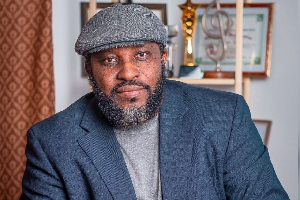The media’s independence and the country’s democracy are being threatened by the woefully low salaries in the media industry, a recent study has said.
The study also uncovered evidence of unpaid or irregular payment of salaries, with 30 percent of respondents stating they experience frequent delays in salary payments. It also noted that some 40 percent of the industry’s workforce have no contractual agreements – a situation more tenuous for those who work outside cities.
“The precariousness of media work is also demonstrated in the low level of salaries employees receive. Nearly half of the respondents (47 percent) earned monthly incomes of at most GH¢1,000,” the study – titled State of the Ghanaian Media report 2023 – uncovered. “The lack of other benefits commonly provided in the formal labour market, such as healthcare, paid-leave, and family support is another example of poor working conditions media workers face,” it added.
The study was funded by the United States Embassy in Ghana and the University of Ghana’s College of Education, and carried out by the Department of Communication Studies and the Media Foundation for West Africa. It was launched on Wednesday, April 19, 2023, and was the culmination of a bid to support the collective vision of achieving a truly democratic and independent media landscape in the country.
Presenting highlights of the study, Prof Audrey Gadzekpo – a former Dean of the School of Information and Communication Studies, and Chairperson of CDD-Ghana – said the study also found that few media companies offered psychological support in situations it may be needed, and little family support when an employee dies.
“And while the majority of newsrooms had employee codes of conduct, few had policies on sexual harassment or discrimination – although a majority of respondents (close to 60 percent) said there were clear sanctions for misbehaviour and that they could seek redress if wronged in the workplace. The authors however note with concern that close to 30 percent of respondents either did not know of any provisions on sanctions or said they were non-existent,” she said.
Recruitment shrouded in secrecy
She said the study, which was among other things to determine the financial viability of media organisations and the safety and working conditions of media practitioners in the country, revealed a lack of transparency in recruitment and promotion practices – which the authors characterise as “shrouded in patronage, nepotism and the absence of structure”.
Most employees do not find work in the media through open competitive means such as advertised positions, but through informal channels such as introductions by influence-peddlers, head-hunting and cold calls to media organisations. Importantly, the study found that the manner of recruitment and social media popularity affect salaries and conditions of service which media employees are offered,” she said.
The media in Ghana has been instrumental in catalysing the nation’s developmental agenda, and in so doing has evolved significantly – from the era of state-controlled broadcast monopoly to the current dispensation of liberalisation.
The Ghanaian media has been integral to the strengthening and deepening our democratic footprint as a nation; and along with the positives there have been some fallouts which undoubtedly blight the otherwise remarkable progress the country has chalked up in this journey toward achieving the aspiration of a true democracy – suggesting that “there’s still more mileage to cover in achieving our ultimate goal for a free and relevant media that drives our collective development as a people,” according to the Provost-College of Education, Professor Samuel Nii Ardey Cudjoe.
He, therefore, stated that findings from the collaborative venture between the Department of Communication Studies-University of Ghana and the Media Foundation for West Africa would be instructive for the change so desired in the country’s media landscape. “It’s my fervent hope that this report will provide relevant stakeholders the much-needed desire to initiate and sustain change across the nation’s media landscape,” he stated.
The Head-Department of Communications Studies, Dr. Abena Animwaa Yeboah-Banin, said the findings call attention to the need for reimagining the field of media and communication training and practice, given the changing dynamics and demands of the times.
“New technologies and other evolutions have drastically changed media and communication industries and ecosystems everywhere, calling into question established models of pedagogy and successes. Today, information is no longer the preserve of a few as used to be the case; nor is there opportunity to monetise that information or to benefit from it. It’s available to everyone and everyone can take advantage,” she said.
And, while these developments are positive for the purposes of inclusiveness and citizens’ participation in the communication and news-making enterprise, they also present a challenge to the mainstream media “to more clearly distinguish ourselves professionally through training and practice,” she said.
General News of Friday, 21 April 2023
Source: thebftonline.com
Woefully low salaries threaten media independence, democracy - Report
Entertainment












